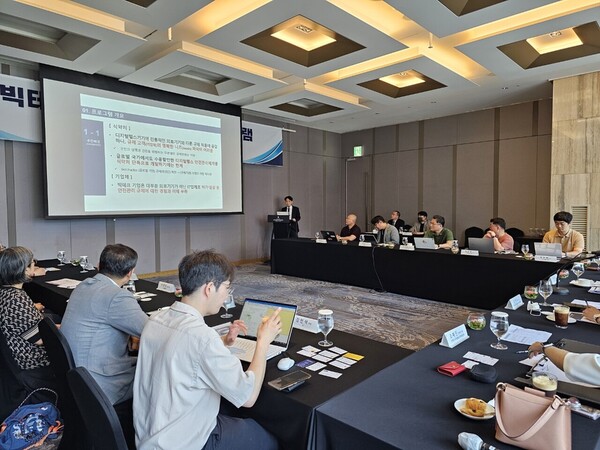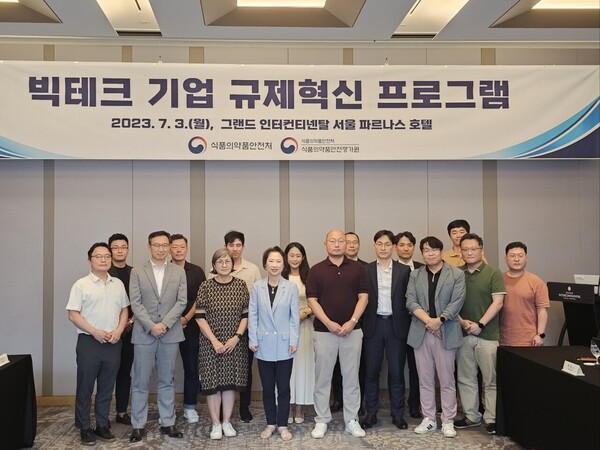As Korean big tech companies, such as telecom carriers and platforms, prepare to enter the digital medical device market, the Ministry of Food and Drug Safety (MFDS) has promised to improve regulations by collecting industry opinions. The attention now is on how the digital medical device market, dominated by venture firms and startups, will be reorganized because of large companies’ arrival and improved regulations.

On Monday, the ministry held the “big tech companies’ regulatory innovation program meeting” at the Grand Intercontinental Seoul Parnas Hotel. Five companies -- Naver, LGU+, KT, Kakao Healthcare, and Kakao Brain -- attended the event.
Earlier, the ministry conducted consultation services for each company. The latest event was organized to share the results of the consultations. It was the first time the companies gathered. The ministry plans to organize more such meetings and identify issues to improve regulations related to big tech in November.
In particular, the ministry and the industry are concerned about the possibility of utilizing artificial intelligence in the medical field triggered by ChatGPT and AI-based medical device safety management. According to ministry and industry officials, some companies, including Naver, are preparing to provide medical services through generative AI.
“Not all but certain companies are developing new products different from existing AI-based medical devices. So, the ministry is also racking its brain on how to validate them,” said Bae Young-woo, a senior official from the Digital Health Regulatory Support Division at the MFDS, during his presentation.

In the case of generative AI, the ministry is trying to decide which part of the medical device approval cycle to focus on, Bae explained. If it focuses on licensing, getting a product approved will take a long time. On the other hand, if the ministry focuses on post-approval management, some critics might say the government should not distribute medical devices that have not been validated."
“We are not sure how many more meetings we will hold. However, we will finally draw out grievances and points for improvement pointed out by big tech companies by November,” Bae said. “From next year, we plan to work on improving regulations by publicly notifying these issues.”
Earlier the day, Lee Jeong-rim, head of the Medical Device Review Department at the Korea Food and Drug Safety Evaluation Agency, explained the program's purpose.
“Many people think that innovative technologies and regulations conflict. However, regulations are specified in the law, and technology is developing daily, so regulatory delays always occur,” Lee said. “We want to communicate through this public-private consultation on what to do until a new system emerges.”
Guidelines that can be made before a law is promulgated are called “soft law,” Lee explained.
“To create soft law, it needs to be timely, specialized, and transparent,” Lee said. “We have organized this event to create a new system that fits the needs of companies and new technologies."

